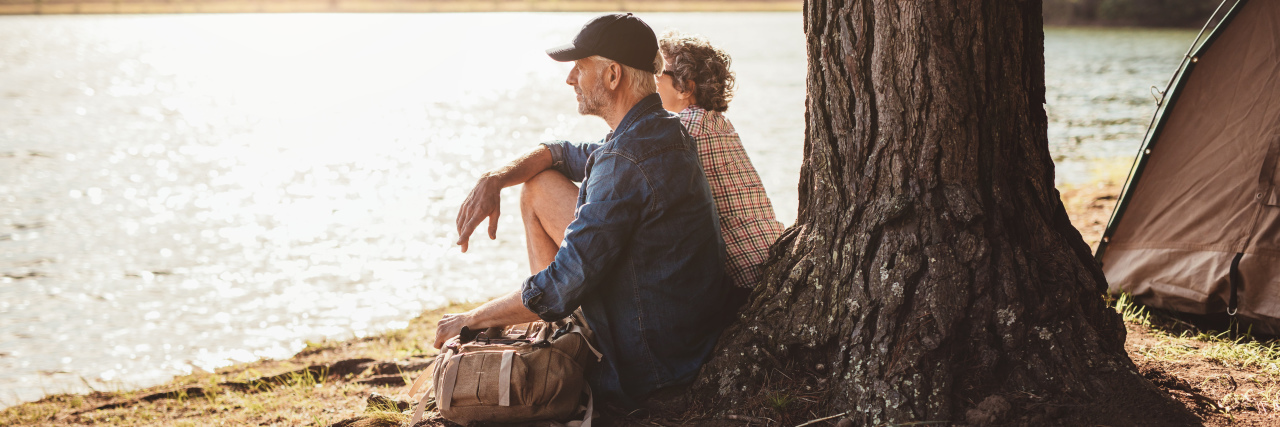No, I’m sorry we can’t.
It’s become our standard answer to most invitations now. Our niece sent a text last month. Hey, we’re going sky diving do you guys want to come? I was so shocked at the invitation I asked if she meant to send it to someone else.
Mistake or not it really brings home the reality of living life with a rare, chronic illness. Inside or outside event? How far away? How long will it last? How late? It’s become too easy to just politely decline.
We’ve always loved camping. Gary and I have wonderful memories of camping with our kids, family, and friends. We introduced our oldest granddaughters to the joy of campfires and sleeping in tents.
When our youngest granddaughter decided it was her turn to camp, our daughter-in law Aimee suggested we plan a campout. I could feel the words beginning to form. We can’t. Then another thought broke through. Our life had evolved into a never-ending series of “we can’t.” Every missed event became a major depression trigger for Gary.
This time, I decided to answer yes, we can.
Planning a campout for someone living with a chronic illness requires some homework. You need consider physical limitations, medication needs, assistive devices, or special diet requirements. What activities are they able to safely join? Which activities need to be avoided?
We already spend a great deal of time traveling very long distances to see doctors so Aimee booked a heavily wooded state park 30 minutes from home. The shorter ride was a plus and trees would provide much needed shade during the heat of the day. Summertime tent camping can be challenging if your healthy but heat is a significant symptom stressor and energy killer for people with compromised health.
Gary’s pill schedule includes cycling off his iron chelation every weekend so by setting up camp on a Friday he was able to iron load during the trip with beef, black beans, hummus, etc. We’ve also learned to shift other fatigue-inducing medications to late morning time and just before bedtime so he will feel a little better early in the day. This shifting of dose time helps combat his consistently low energy.
We chose a campsite supplied with electricity, potable water, and 25 yards from shower and restroom facilities. Having power let us position fans to help combat the heat and make daytime naps bearable. Gary was able to fill an air mattress using a small electric air pump and plug in his APAP machine.
The lake was accessible by following a short trail from our camp. Gary has ataxia so two aluminum hiking poles helped him keep his balance. He can no longer swim, but with our assistance, he was able to get into the shallow edge and cool off by hanging onto a small inflatable. Keep in mind the importance of staying aware. A slip or loss of balance could end badly.
Saturday evening the kids wandered off to the parks weekly dance. Gary and I stayed behind in camp enjoying the quiet of the fire. It had been a long, exhaustive day of fun with family and friends. We left the others to enjoy their activities late into the night and went off to bed early. Being mindful of your limits will help you through the next day.
It’s also essential to remain flexible. We were having so much fun Saturday we added one more day to our trip, deciding to return home Monday instead of our original plan of Sunday. By mid-day, I could see it was a mistake, so we packed up and came back Sunday evening. It helps when the people you’re with understand your limits.
Living with a chronic illness forces you to make adjustments every day but you shouldn’t give it the power to stop your life. It’s true sometimes we have to pass on an invitation, but with planning and a little understanding we look forward to saying, why yes, we can.
This story originally appeared on Living with SS

